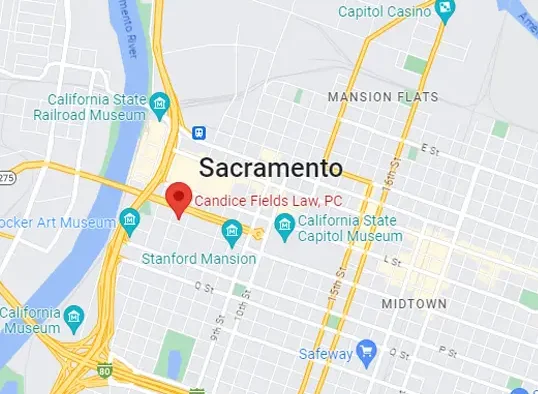Federal Cyber-Crime Lawyer: Navigating the Digital Battlefield
It’s hard to believe that, not long ago, people did not use computers and other electronic devices to support their daily lives. Now, dependence on the internet and electronic communications is widespread and has led to a whole new type of crime collectively referred to as cyber crimes. Several federal law enforcement agencies, spearheaded by the Federal Bureau of Investigation, are intensely focused on identifying and prosecuting cyber crimes.
Need legal assistance?
What is a Federal Cyber Crime?

At its core, cyber crime involves illegal activities carried out through computers or the internet. Cybercrimes can range from unauthorized access to secure databases to spreading malware or participating in online fraud. With such activities carrying severe penalties, including prison time and hefty fines, the services of an experienced federal cyber-crime lawyer are indispensable. Examples of cybercrimes include:
- Unauthorized Access: Gaining unauthorized access to computer systems or networks, commonly known as hacking.
- Malware Distribution: Creating, disseminating, or installing malicious software like viruses, worms, ransomware, or spyware designed to infect, damage, or control computer systems.
- Phishing: Sending deceptive emails or messages to trick individuals into revealing personal information, such as passwords or credit card numbers.
- Identity Theft: Stealing personal data to impersonate someone else, usually for financial gain or malicious intent.
- Cyberstalking: Using digital means to harass or stalk individuals, causing them emotional distress
- Cyberbullying: Using electronic communication to threaten, harass, or intimidate someone, especially prevalent among adolescents.
- Distributed Denial of Service (DDoS) Attacks: Overloading online services, websites, or networks with traffic to make them unavailable to users.
- Cyber Fraud: Committing fraud by manipulating digital data or through deceptive online practices.
- Cyber Espionage: Unauthorized accessing of information, often classified or proprietary, for political or economic advantage.
- Child Exploitation and Abuse: Engaging in the production, distribution, or consumption of child pornography, as well as online grooming of minors for sexual exploitation.
- Digital Piracy: Illegally copying, distributing, or using copyrighted digital content.
- Cyber Terrorism: Using digital tools or platforms to cause widespread panic, disruption, or terror.
- Cryptojacking: Unauthorized use of someone's computer to mine cryptocurrency.
- E-commerce Fraud: Deceptive practices related to online sales, such as non-delivery of items, auction fraud, or payment card fraud.
- Data Breaches: Unauthorized acquisition of data from corporate databases, often leading to the leakage of personal information of customers or employees.
- Invasion of Privacy: Unauthorized access or distribution of personal or private digital data, including unauthorized surveillance or eavesdropping.
- Sale of Illegal Items Online: Using the dark web or similar platforms to sell drugs, weapons, or other illegal items.
- IP Address Spoofing: Disguising the source of internet traffic by falsifying IP address information.
- Defacing Websites: Unauthorized alterations to websites, changing their appearance or functionality, usually for a message or protest.
- Intellectual Property Theft: Stealing or using copyrighted materials, patents, trademarks, or trade secrets without permission.
It is worth noting that the above list is not exhaustive, as cyber crimes continue to evolve with technological advancements.
How Candice Fields Law Can Help When Charged With a Cyber Crime
In the digital age, facing a cyber crime charge can be an unnerving experience, filled with complexities and severe ramifications. The potential penalties you face if convicted of a federal cyber crime will depend on several factors, including the criminal offense involved, your own criminal history (or lack thereof), and the facts and circumstances of the case. Many cyber crimes, however, are charged under the Computer Fraud and Abuse Act of 1986 (“CFAA”) found at 18 U.S.C § 1030 which carries up to 20 years in prison if convicted. Candice Fields Law stands as your reliable fortress in these trying times, helping to navigate the intricacies of cyber crime law. Here is how we can assist:
Comprehensive Case Analysis
Before diving into the battlefield, we analyze your case exhaustively. By meticulously scrutinizing the evidence presented, we aim to identify weaknesses in the prosecution's arguments, leveraging them to build a formidable defense.
Knowledgeable Guidance on Federal Laws
Understanding federal cyber crime law is paramount in crafting a defense that stands. At Candice Fields Law, we understand the legal frameworks governing cybercrimes, such as the Computer Fraud and Abuse Act (CFAA), equipping us to contest charges with utmost proficiency.
Personalized Defense Strategies
Every case has its unique facets. Our approach is to tailor a defense strategy that aligns with the specific details of your case. Through personalized defense strategies, we aim to shield you effectively from the potential repercussions of cybercrime charges.
Preservation of Your Rights and Reputation
Amid a cyber crime case, safeguarding your rights and preserving your reputation becomes our priority. We ardently work to prevent unwarranted damage to your personal and professional life, offering counsel to shield you from potential pitfalls.
Transparent Communication
At Candice Fields Law, we believe in maintaining open channels of communication. We keep you informed at every stage, ensuring you are never left in the dark about the developments in your case.
Your Partner in the Legal Battle
As you face cyber crime charges, remember you do not have to do it alone. Candice Fields Law is here to stand with you, offering unwavering support and legal assistance to secure the best possible outcome. Reach out to us, and let us embark on this legal journey together, aiming for justice and fairness at every turn. Contact Candice Fields Law today.
Need legal assistance?
Cyber Crime Lawyer FAQs
1. What is a federal cyber-crime lawyer?
A federal cyber-crime lawyer represents individuals and entities facing allegations or charges related to internet crimes. They understand both the technical and legal aspects of cyber crimes.
2. When should I hire a criminal defense lawyer?
As soon as you believe you are under investigation or have been charged with a cyber crime, it is essential to consult with a criminal defense attorney to ensure your rights are protected and to begin building a defense.
3. What kinds of cases do federal cyber-crime lawyers handle?
They handle various issues, including hacking, unauthorized access, malware distribution, phishing, identity theft, online fraud, digital piracy, and more.
4. How can a federal cyber-crime lawyer help me?
A federal cyber-crime lawyercan provide legal advice, challenge evidence, negotiate with prosecutors, represent you in court, and work towards the best possible outcome for your case.
5. What are the potential consequences of a cyber crime conviction?
Effects can range from fines, probation, and community service to imprisonment, restitution, loss of professional licenses, and a permanent criminal record.
6. How much does a federal cyber-crime lawyer cost?
Fees vary based on the complexity of the case, the lawyer's experience, and the region. Some lawyers charge flat fees, while others bill hourly. Always discuss costs upfront during your initial consultation.
7. Can a federal cyber-crime lawyer guarantee a positive outcome?
No lawyer can guarantee a specific result. However, hiring an experienced cyber crime lawyer increases the chances of a favorable outcome.
8. Is everything I discuss with my federal cyber crime lawyer confidential?
Yes, attorney-client privilege ensures that communications between you and your federal cyber-crime lawyer remain confidential.
9. What should I do if I believe I have been wrongfully accused of a cyber crime?
Only speak to investigators or law enforcement after consulting a cyber crime lawyer. Even if you think you are innocent, having legal representation is crucial.
10. How do cyber crime laws differ from traditional crime laws?
While many principles remain the same, cyber crime laws specifically address offenses in the digital realm. The dynamic nature of the technology also means that cyber crime laws can evolve rapidly.
Remember, if you or someone you know is facing accusations or charges related to cyber crimes, seeking legal counsel as early as possible is vital to ensure the best possible defense.





